Why are we?

Lineo Segoete (ARAC-Another Roadmap Africa Cluster, Maseru working group) reflects on the practicalities of pan-African coordination and their epistemological implications.
ARAC’s stance (and by extension that of Another Roadmap School) is that international policies on art education lack substantial, nuanced research on art education practices and epistemology in the varying socio-political contexts represented across Africa. We recognise that there exists insufficient critical engagement with the history and persistent hegemony of Western concepts of art and education within the continent.
The starting point of our work: Country, environment and discipline all inform what we end up contributing to the collective. This is to say, we are inspired and motivated by our societies and their politics, the spaces we occupy and the architecture and natural topography thereof, things both tangible and intangible and, of course, the conversations we participate in, listen to and even overhear. Over the years, we have paid attention to our communication styles, to stress relief and self-care rituals, to how we eat and have fun. Our meetings therefore serve as melting pots for birth and rebirth. New processes and symbolic expressions emerge, culminating in practical approaches that reflect our various backgrounds.
1.
EXHIBITION KIT
An open-ended method of art-making and learning in new company including:
— Works developed through ARAC’s collective method
— Works emerging from ARAC members’ own practices
— Objects coming from artists associated with ARAC
This tool is aimed primarily at members of ARAC as they move around and represent the collective in different contexts.
2.
(UN)CHRONO/LOGICAL TIMELINE
The timeline aims to locate histories of arts education including the routing of personal narratives, firstly in an African context and then abroad. The Johannesburg working group came up with this concept as a way of coping with their struggle with the term ‘history’. In IsiZulu there is no HIStory, no masculine, or feminine, but rather the word Umlando, which is also used to define a stem of a plant or a story.
This stem-story represents time, the beginning or the core essence of the story. This timeline, in its (un)chronological nature, speaks to Umlando beyond the written, into the imagined, vocal, sonic and visual. Each iteration has different interactions calling for a response and, in some instances, observation and intergenerational engagement.
The timeline has had many public iterations and manifests in a variety of ways. However, the format is always the same. People grab a piece of paper and share a significant historical moment in art, in history, or in their own personal lives. These stories are spread out in non-linear order on a plastic sheet or floor. Afterwards, participants are invited to engage in the storytelling and then share their impressions.
3.
TRAVELLING PRINTING KIT IN A SUITCASE
This is a concept derived from the Medu Art Ensemble. The collective consisted of a group of cultural workers who would create posters as part of a protest art movement during the apartheid era, until their operation was brought to a violent end by the South African Defence Force in Gaborone Botswana in 1985. ARAC re-imagines this suitcase in the present. It consists of monoprint materials which can be used and adapted in any context. Medu searched for methods of producing graphics that used materials and skills that could be made available in community organisations and townships. Silkscreening could be developed as a relatively low-cost and available technology. Medu explored ways to adopt newer silkscreen (such as photo stencil) technologies to township conditions, where people might not have running water or electricity. By 1984, the graphics unit proposed producing and distributing the ‘silkscreen workshop in a suitcase’. This would be a portable box (50 x 75 x15 cm) with a silkscreen press that could print A2 posters, ink, squeegee and stencil material. This would enable township organisations to make posters even under ill-equipped or illegal conditions. (SAHO)
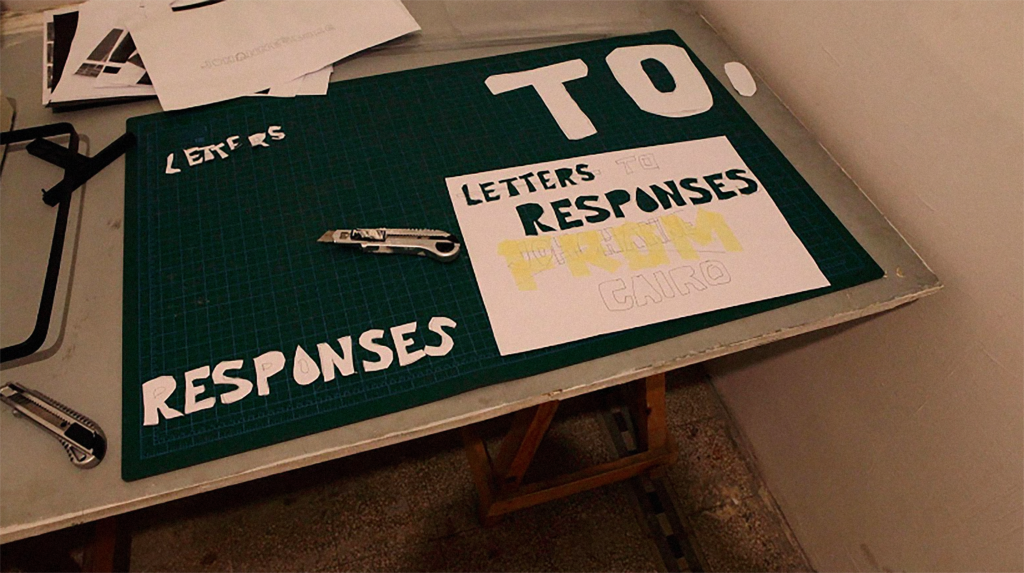
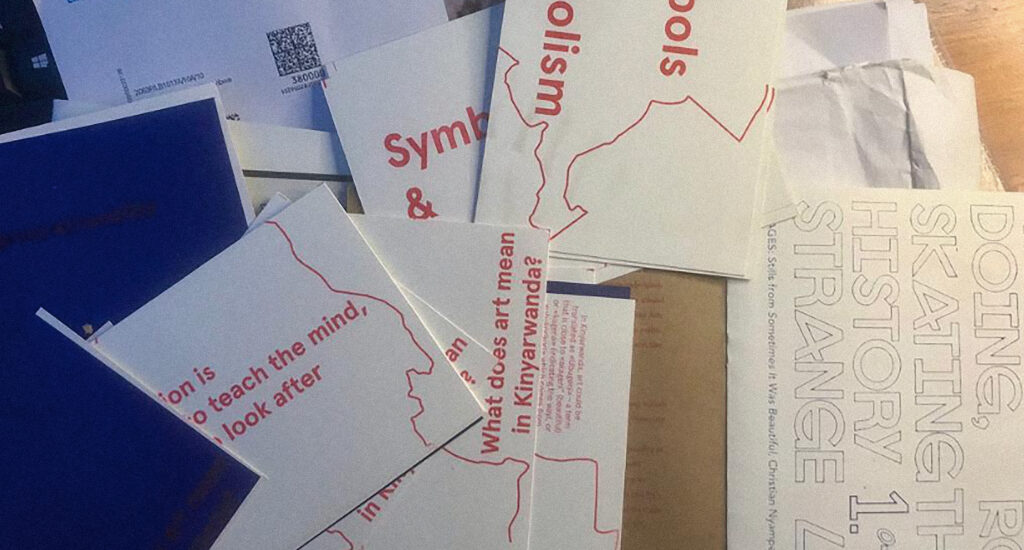
4.
RADIO PLAY/ARCHIVE ACTIVATIONS
The nature of our mutual curiosity inevitably leads to the archive. We dig through this for audio-visual, photographic, aural and textual portals into the past to help us understand ourselves and our broader present social circumstances. One modality that has piqued our interest is radio and the performativity of it. Through radio plays we imagine scenarios in which we are privileged to hold conversations with our intellectual ancestors and ask them questions, whether hypothetical or philosophical.
5.
LETTER WRITING
One of the most important material symbols of solidarity is a letter. The Medu Art Ensemble newsletters contained letters. Their forms ranged from the ubiquitous standard ‘letter to the editor’ such as ‘Letter from South Africa’ (vol. 5, no. 2) to ‘Poems from Vietnam’ (vol. 3, no. 3). Indeed, these two examples may provide us with an entry into the significance of the letter over time. The letter as a means of communication is also a tool to mobilise.
6.
POSTCARD METHOD
Through this method originating in Lubumbashi, working groups leave each other messages that serve as either clues or highlights based on activities that occurred during absences. The messages can be statements, questions, phrases or tips through which members both maintain connections and feed into the knowledge economy we are cultivating.
7.
LANGUAGE WORKSHOPS
Emma (Kampala working group) put it best when she said, ‘Indigenous African languages are regularly marginalised in law, in government, in journalism and in the education system within the very regions from which they originate. They are too rarely taken seriously by those with power as tools for serious discussion and debate. So-called intelligent people converse in the languages of former colonisers. Immigrants settling in Africa from Europe and North America and their descendants can prosper there for generations without ever needing to acquire a proficient grasp of the languages of the people among whom they live. The obverse is decidedly untrue.’
As a response, members of the Lagos, Maseru, Joburg and Kinshasa working groups have each designed workshops around language. The Lagos working group through new interpretations of old writing systems, the Maseru working group through word invention and studies in orthography, the Joburg working group through the investigation of creolisation/pidginisation with Tsotsitaal (a mashup of Sesotho, IsiZulu, Afrikaans and English born in popular shebeens, taverns, restaurants, weddings, funerals or any social event) as the primary subject of study, and the Kinshasa working group through neologisms that have emerged within contemporary arts practice in DR Congo.
The erasure and dilution of native languages in Africa is propagated by the fact that people simply do not recognise the value in them from being conditioned to assume that colonial languages are superior. Through our interventions, we hope to transfer power back to the locality and even elevate the status of already existing languages by highlighting the value of the heritage and history embedded within them.
8.
PEOPLE WHO THINK TOGETHER DANCE TOGETHER
Based on the realisation that we are not meant to just meet and have presentations of research, feedback sessions and sessions to plan how to take our works back to our communities and constituencies, we made it a tradition to also dance together as a radical and emancipatory approach to culture, education and knowledge in post-independence Africa, the by-products of which are fun and stress relief.

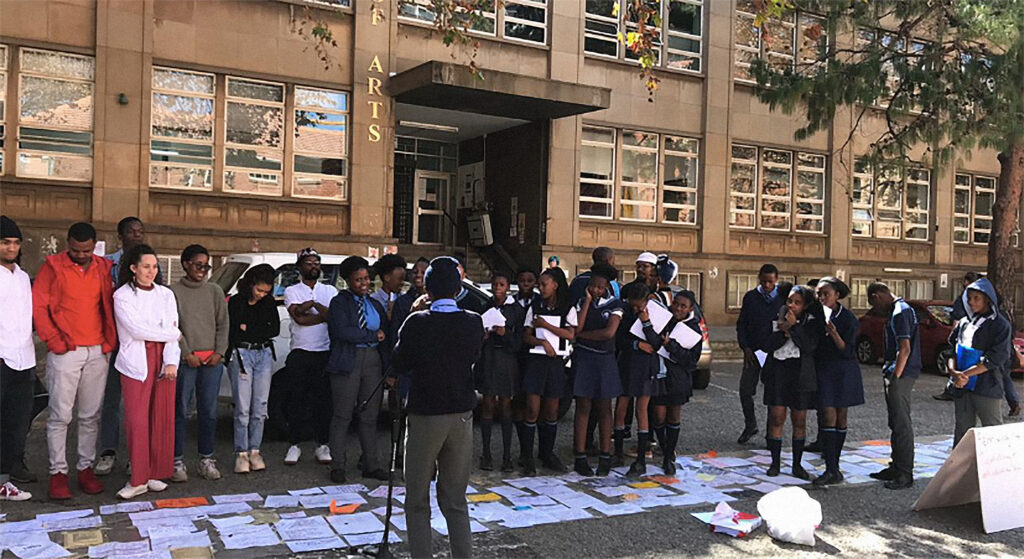
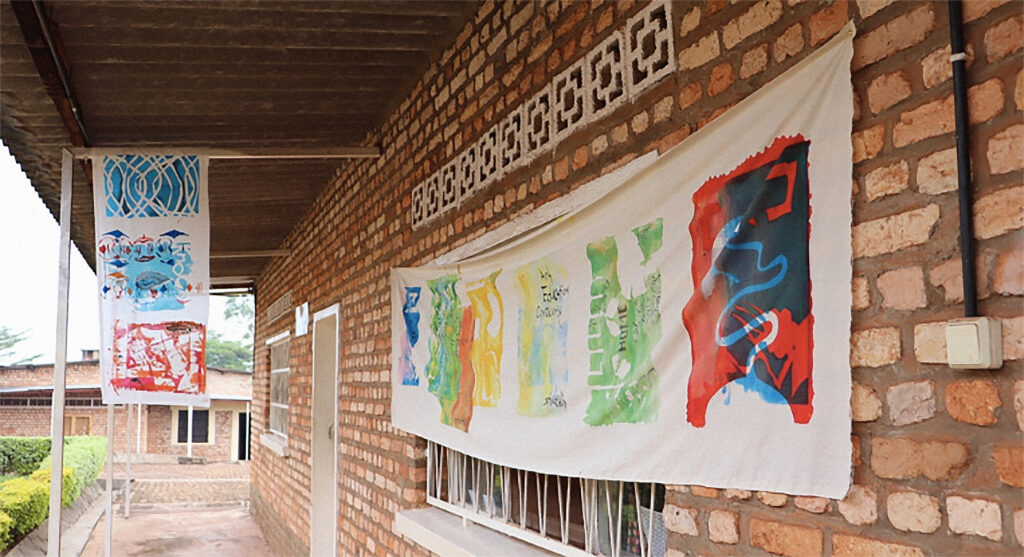
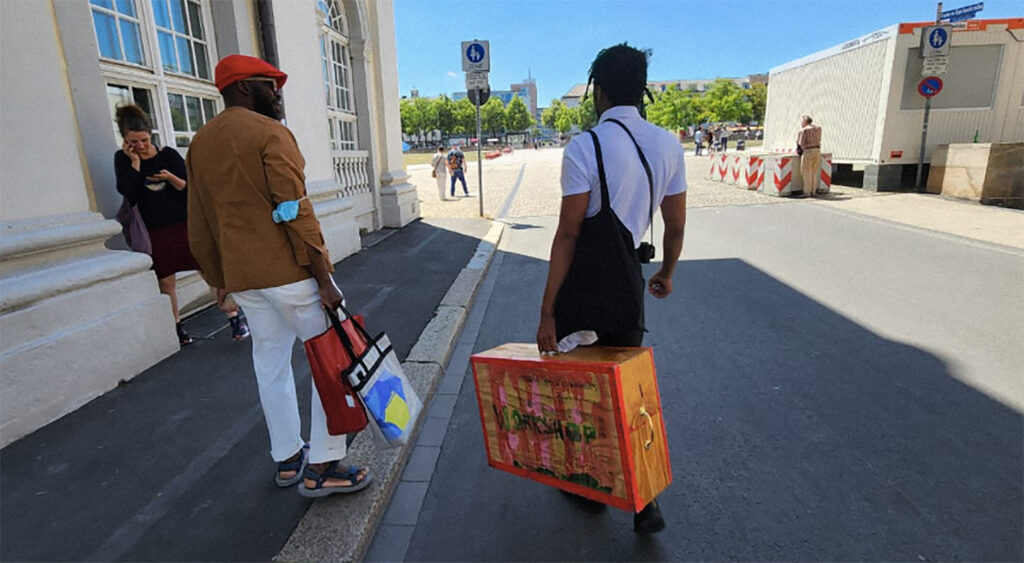
9.
ÉCOLE DU SOIR
The night school features a series of film screenings inspired by writer and director Ousmane Sembène. It is a pedagogical experiment animated through a deliberate screening of films that resonate with our practices as well as the questions we ask. We recognise that film is a powerful educational tool which can yield massive social transformation and disseminate information in a manner that also brings people together to engage in conversation. It puts the agency back into the community by showing them that they also have the capacity to tell their own stories.
10.
THE KITCHEN IS A DANCEFLOOR
Virtually all the ARAC members enjoy cooking. It has therefore become a core part of our practice to exchange tastes and recipes from our various walks of life. As we cook, we discuss the different ways in which we nourish our bodies, approach cooking as a therapeutic practice, and practice care.
11.
WALKING, HARVESTING AND PUBLISHING
As the title suggests, we walk as a means to help us process what we have just learned, heard, had communicated to us and observed. The communication between bodies in motion and the mental bones at work play a big role in helping us harvest and process pieces of information until we reach a point of understanding and internalisation. The next step, naturally, is publication.
— Now that Christianity has become ‘African’, where to bury the African ghosts?
— What if the ghosts of our troubled histories have no resting place?
— Are the artists who have been ‘discovered’ in harmony with the whole of their ecosystem?
— How do we inhabit histories or think of history as a resource?
— How are educators, artists, activists and intellectuals participating in the quest for solutions leading to a more equitable cultural production today?
— Why is the field of cultural work still considered elite?
— Is it true that collaboration is not always about putting together people in the same room?
— How can we use cinema as a night school?
ARAC’s practice will continue to evolve and multiply as new perspectives are introduced, old theories are revisited and challenged, and interactions with those from outside of our collective (by way of invited experts or observers and friends) reveal blind spots and hidden gems. We depend on this for our growth and therefore welcome it. More than anything, we embrace the call it presents to us to collaborate and exchange more extensively with others.
Massive thanks to Gudskul, fellow contributors, and the Bauhaus Dessau Foundation.
Text by Lineo Segoete (Maseru working group)
is the name of an international network of practitioners and researchers who are working toward art education as an engaged practice in museums, cultural institutions, educational centres, and grassroots organisations in 22 cities on four continents. The Another Roadmap Africa Cluster (ARAC) comprises all of its working groups that are based in African cities. It is currently active in the cities of Kampala, Nyanza, Lubumbashi, Kinshasa, Maseru, Johannesburg, Lagos and Cairo. Founded in Uganda in 2015, the ARAC exists to foster Africa-based conversations about the arts and education, particularly with respect to colonialism’s epistemological and aesthetic legacies. It aims to develop a shared knowledge base and a structure of mutual learning that is genuinely accessible to and meaningful for cultural workers on the continent. The ARAC developed as localised and regional components of a collective research project concerned with the history of arts education, undertaken with a network of educators, artists and researchers working in four continents. It was initiated at the Institute for Art Education of Zurich University of the Arts (ZHdK). The working groups of the ARAC include members of the Keleketla! Library, Keep the Dream Arts, Wits School of Arts (University of the Witwatersrand) and independent cultural workers who compose the Johannesburg working group; the Kampala working group in Uganda, operating at Nagenda International Academy of Art & Design (NIAAD); the Lubumbashi working group, operating at Centre d’art Waza; the Nyanza working group in Rwanda, working from the former Nile Source Polytechnic of Applied Arts (NSPA); the Maseru working group in Lesotho, active at Ba re e ne re Literary Trust, and the Cairo working group in Egypt, hosted by the Contemporary Image Collective (CIC).